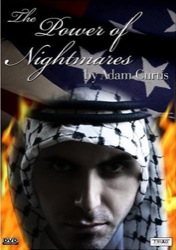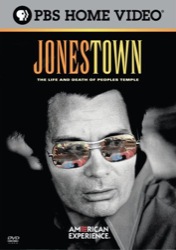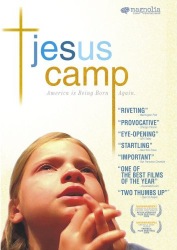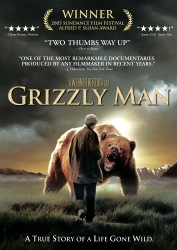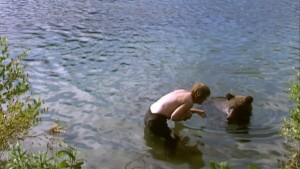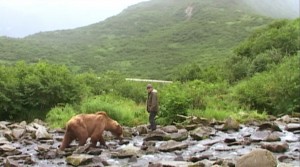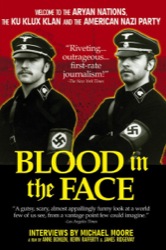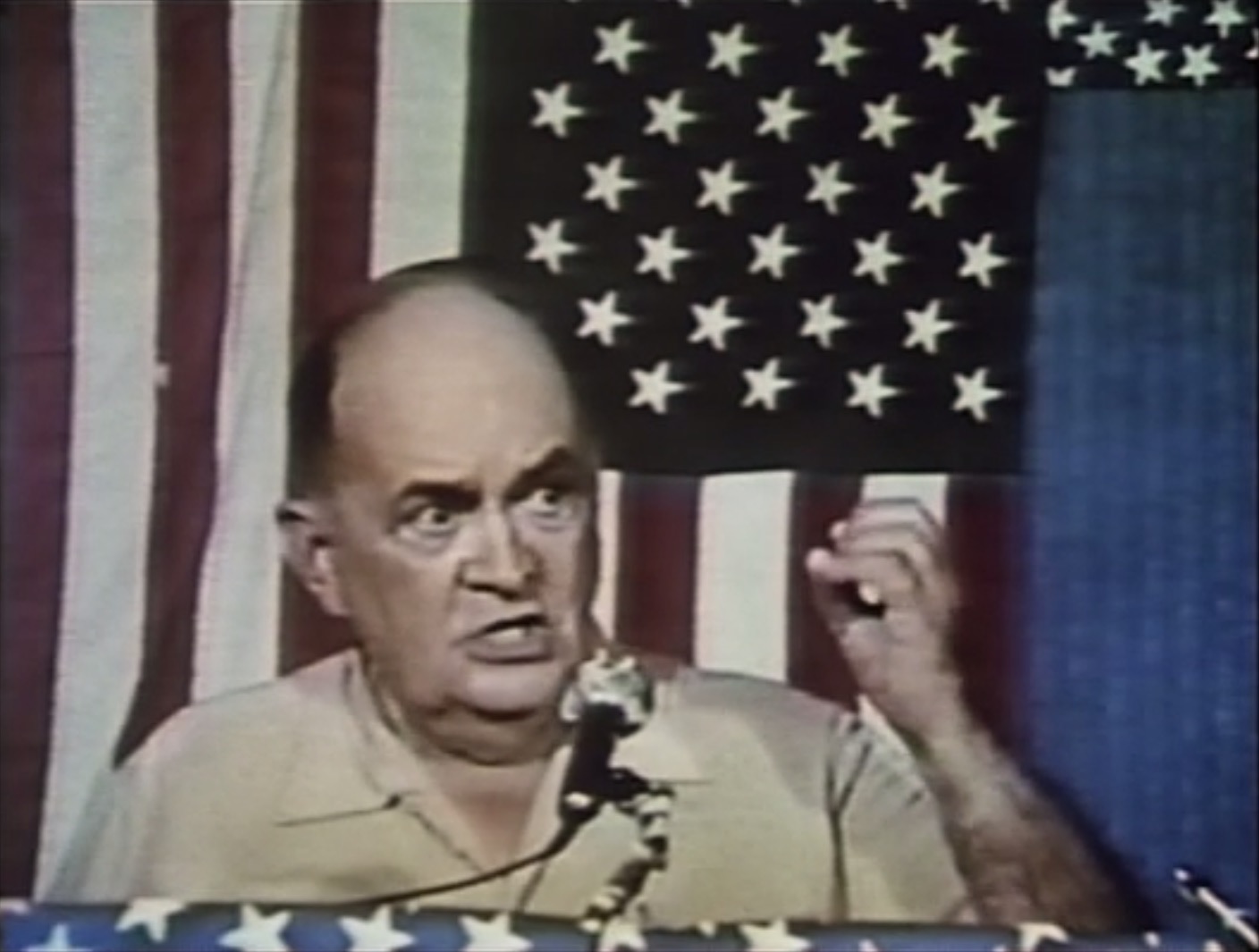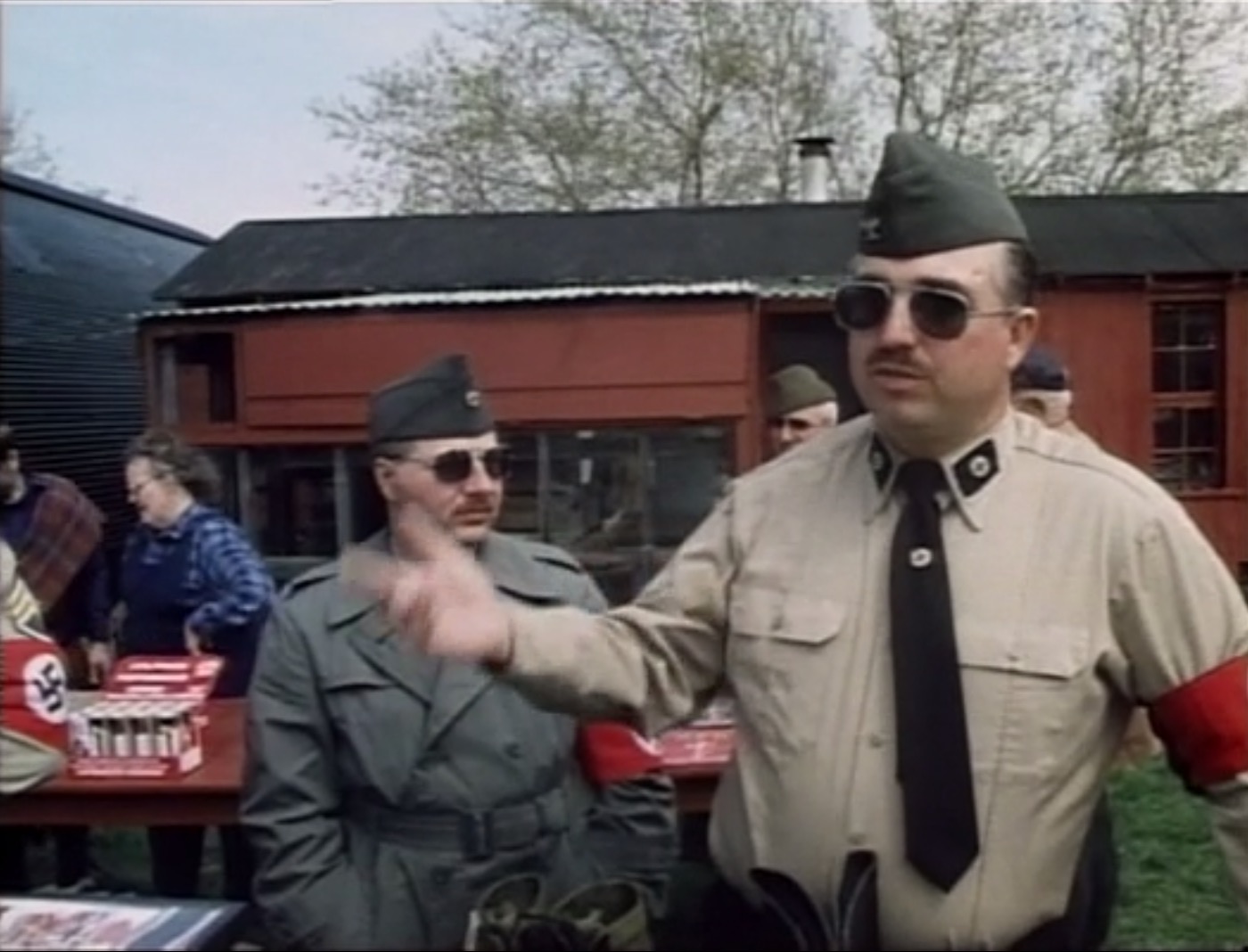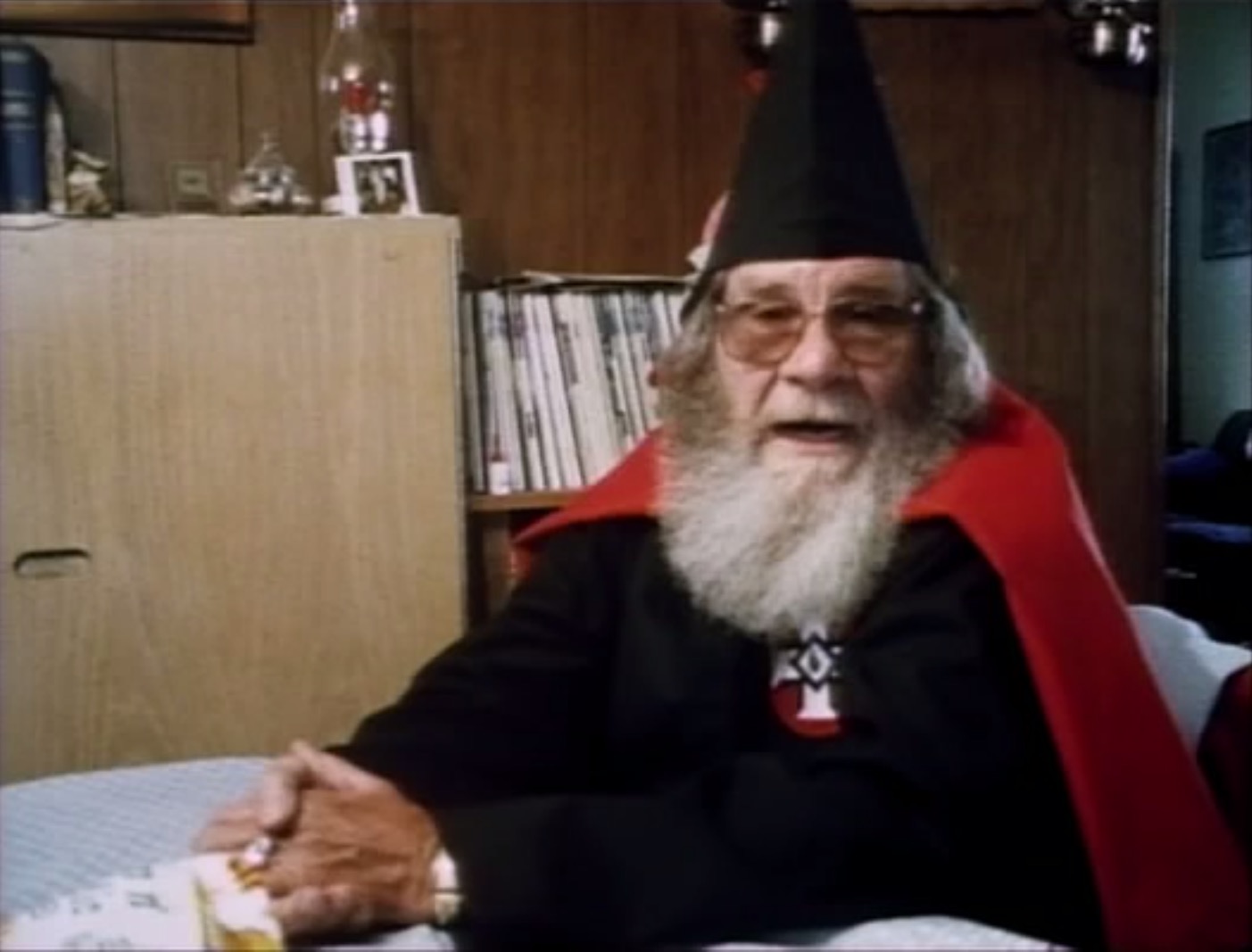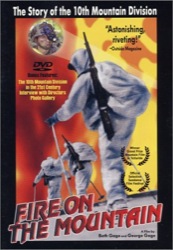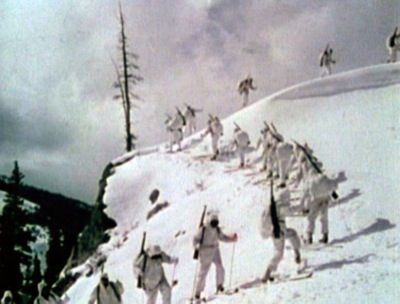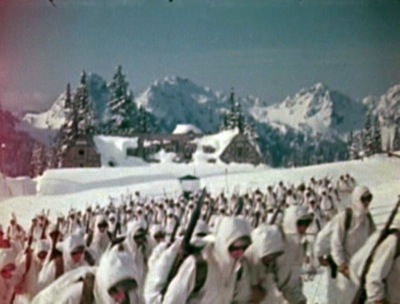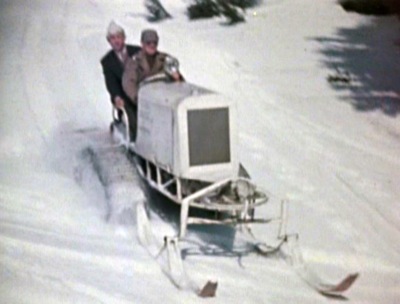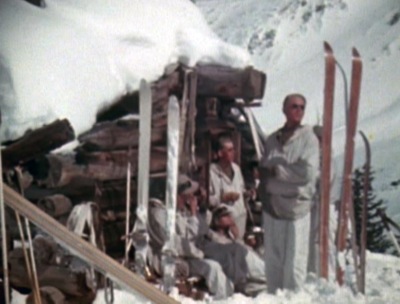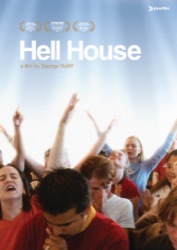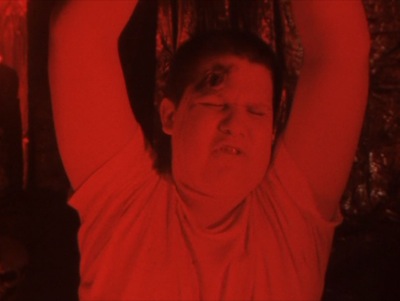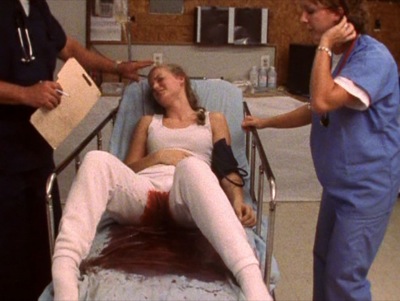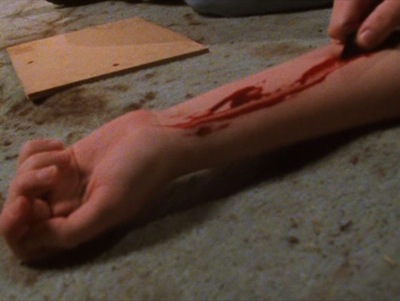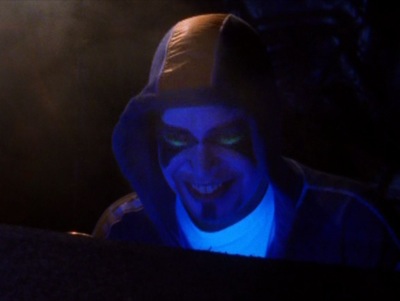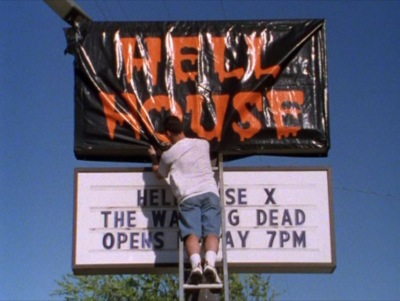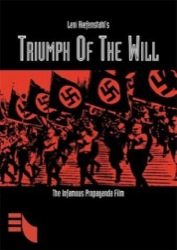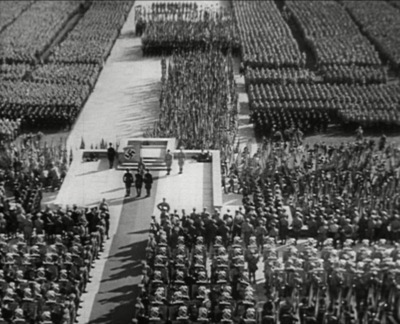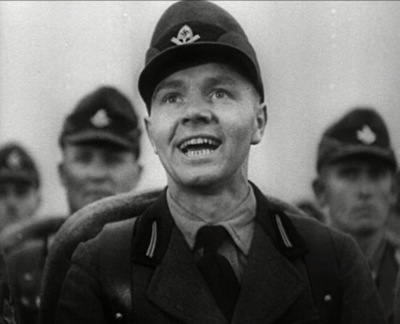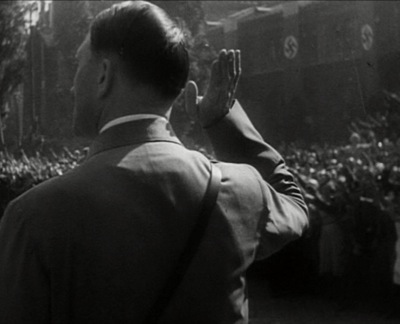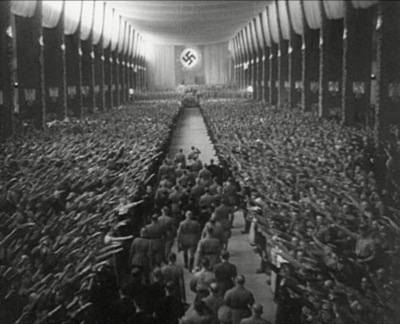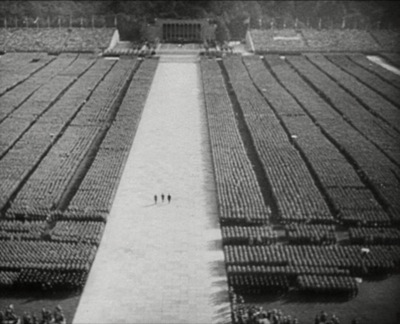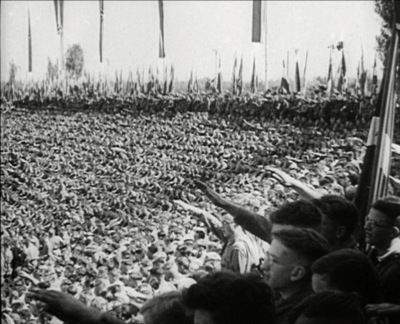Extremists
The Power of Nightmares
The thesis of this three-part cinematic essay from the BBC is complex, but plausible. It begins by observing that after the horrors of WWII people no longer rallied around optimistic Pollyanna visions of a better tomorrow. The sole belief that could unite a country then became fear — fear of communism. A fear that was wildly, if not insanely exaggerated. But when communism collapsed upon itself, a new fear was fanned to keep the electorate united behind leaders. It also is wildly exaggerated. That new fear is “terrorism.” It transformed a tactic into an enemy. Furthermore this new uniting nightmare has been produced by two fundamentalist strands in the world: Islamic jihadists and American neo-cons. Both sides are ideologically dogmatic, both exaggerate the threat of the other, and both work on the power of worst-case nightmares, and in a strange way, both need each other to keep their people united. This film is a very polemic, subjective, extended argument. But it is well done, BBC-style, with interviews of the principle characters in the Islamic jihad world and in the US neo-con camp, and some fascinating deep history. It is smart enough to be worth arguing with. The Power of Nightmares has the potential to shift how you frame the “war on terror.” At least it shifted my perspective, even if I don’t agree with all its conclusions.
— KK
The Power of Nightmares
Adam Curtis
2004, 180 min.
DVD, $23
Read more about the film at Wikipedia
Rent from Netflix
Available from Amazon
Watch all three parts at the Internet Archive Moving Image Archive
Jonestown
It’s so bizarre. On the command of their minister, nine hundred extremely happy people drank cyanide-laced Kool-Aid and killed themselves and their children in group solidarity. The scale of this discombobulation is so huge that “to drink the Kool-Aid” is now shorthand for believing what the group says. But how could this happen? How could a black church lead by a white man build a model, indeed admirable, interracial commune in the jungle and then off themselves overnight? This very disturbing story is told in the words of members who survived. It’s about the dark power of faith and hope. It’s about cults and authoritarianism. It’s about how evil slips away from good, so that good people become monsters. It almost explains the Nazis. It’s a wrenching true film.
I find that the bonus deleted scenes on most DVDs are better off remaining deleted. But on Jonestown, some of the most telling interviews are inexplicably in the deleted-scene bin. I am thinking of the ones where the surviving members say, “If I had been there that day, there is no doubt in my mind that I too would have drunk the Kool-Aid,” and then explain why. No student of the human condition should miss seeing this story. This film might even save us from some future despot.
–KK
Jonestown: The Life & Death of Peoples Temple
Stanley Nelson
2006, 86 min.
$26, DVD
Read more about the film at Wikipedia
Rent from Netflix
Available from Amazon
Jesus Camp
This film succeeds in making you afraid of Evangelical Christians. You get an inside look at a zealous summer Bible camp, filmed with the full participation of the eager director and very young participants. There are a lot of things to be scared of: talking in tongues, an unholy mix of politics and religion, lots of blind intolerance, the brainwashing of kids, and seriously misguided zeal. As a devout Christian I am ashamed. However, its success rubs me the wrong way because stirring up fear – whether justified or not – makes people stupid. We already have a government stupefied by Fear of low risk terrorism, of Muslims, and the like, with no attempt at understanding. This film, although honest in its portrayal, feeds that republic of fear. I’d like it a whole lot better if it would have revisited the kids when they were mature (as 49 Up does) to see how this camp changed them. The film, as is, makes no attempt to understand the strange things its sees – only to drum up fright. But because the documentary of these common Evangelical/Pentecostal scenes are not very common in mainstream media, and because the glimpses are direct, intimate, unflinching, real, and honest as far as they go, I recommend it. Christians, take heed.
— KK
Jesus Camp
Directed by Heidi Ewing and Rachel Grady
2006, 84 min.
$3, Amazon Instant Video rental
Read more about the film at Wikipedia
Rent from Netflix
Available from Amazon
Grizzly Man
The joy of the wild can melt our hearts so that we feel completely at one with nature. Sometimes that joy is so great it can send us over the edge into madness. That’s what happened to Timothy, who fell in love with the Grizzly Bear. His zeal to protect them from other humans led him to spend 14 summers in their feeding grounds where he became their friend. He came to see his defense of them as heroic and began filming himself as the star of his own movie while living among them. In his own intimate video tapes, we hear his confessions, dreams, and scripted scenes as gonzo nature host. We also watch close up and personal as he gradually becomes unhinged in his connection to the bears, and late one fall, Timothy is eventually eaten by one of the grizzlies he was filming. Later, Timothy’s footage was masterfully edited and supplemented with interviews by documentarian Werner Herzog into one of the most memorable true films in years.
— KK
Grizzly Man
Directed by Werner Herzog
2005, 100 min.
$3, Amazon Instant Video rental
Read more about the film at Wikipedia
Rent from Netflix
Available from Amazon
Blood in the Face
Filmed in the late 1980s when militant white supremacists were on the rise, this documentary lets them talk without comment during a rally in Michigan. It soon becomes clear what wackos and crackpots they are. For example the title of the film comes from their definition of a white person: a person who can blush, you know, where there’s blood in the face. It’s all downhill from there, with conspiracy theories, looney facts, secret information, unabashed ignorance, and of course, tons of blind hate. The more sincere and harder the racists try to explain, as they become more intimate in the film, the more ridiculous they seem. Rather than conjuring up fear (as say the film State of Mind, about the cult of North Korea, does), this one summons up pity for the deranged. Still, it’s a fantastic window into a political force larger than its marginal numbers, and now with immigration back in the headlines, well worth looking into. They are nuts, but influential nuts. Their looniness is documented here with a fine touch.
— KK
Blood in the Face
Directed by Kevin Rafferty and James Ridgeway
1990, 78 min.
$15, DVD
Read more about the film at Wikipedia
Rent from Netflix
Available from Amazon
Fire on the Mountain
In the pre-dawn of the WWII, an ambitious outdoorsman convinces President Roosevelt to fund an elite army corp who are expert in mountain skills — to compliment US water and amphibious forces. They round up all the ski bums, mountain climbers and wilderness die-hards in America at that time, long before such activities were mainstream. Among those who respond to this call is sierra club founder-to-be David Brower. The soldiers camp and train in Colorado, near the then unknown Aspen. They develop the snowmobile, the snow cat, early versions of modern camping, and modern ski techniques. Then off to the Alps in Italy where the US mountain unit defeats Nazi troops in a key mountain battle. Then they return to the US to invent the ski industry, Nike shoes, and run most of the ski resorts in the West. What holds all this together is the intense camaraderie of these outdoor fanatics. As one old soldier said, “This wasn’t an Army unit. It was a fraternity.”
— KK
Fire on the Mountain
Directed by George Gage, Beth Gage
1996, 72 min.
$25, DVD
Read more about the film at Wikipedia
Rent from Netflix
Available from Amazon
Hell House
A weird form of evangelism that is slowly gaining among fundamentalists. Churches in the midwest construct vast “hell houses” to scare visitors to Jesus. Originally begun as a response to Halloween haunted houses, these elaborate stagings, crammed with theatrical effects and high-school actors on October 31, try to outdo each other in their ultra-realistic depiction of sin and horror. This documentary follows one church as they embark on another year of creatively presenting depravity — a labyrinth of rooms each seeded with a different sin (suicide, drug addiction, prostitution) realistically reenacted. Innocent kids scare themselves sick by how realistic they’ve made their own hell. The film works because it is sympathetic to those possessed by their enemy, and because it doesn’t overdo the obvious irony that hell houses are so spooky in concept that they scare in the wrong direction. On the other hand, nobody creates such amazing haunted houses like they do.
— KK
Hell House
Directed by George Ratliff
2001, 86 min.
$3, Amazon Instant Video rental
Read more about the film at Wikipedia
Rent from Netflix
Available from Amazon
Triumph of the Will
A prime record of the 20th century. This two-hour documentary was created as a propaganda film for the Nazis, to introduce Germany and the world to Adolf Hitler and his deputies Heinrich Himmler, Joseph Goebbels and other now infamous men. It was filmed during the Nuremberg Rally in 1934 and features amazingly vivid scenes: stadiums of hypnotized youth, infinite marching columns of black-booted soldiers, and the awesome spectacle of precision mass rallies. All these now-cliche’d cinematic images were invented by this true film. The access is so close, the shots so artistically designed, that one feels as if it were a scripted Hollywood movie, which it kind of is. Each shot is staged with supreme drama. At the climax, Hitler delivers his Third Reich speech, and we can see each drop of sweat roll down his face. For a full understanding of how this film captured (and disseminated) the Nazi ideology, listen to the historian’s commentary track, in addition to the English subtitles.
— KK
Triumph of the Will
(Triumph des Willens)
Directed by Leni Riefenstahl
1934, 110 minutes
$26, DVD
Read more about the film at Wikipedia
Rent from Netflix
Available from Amazon


